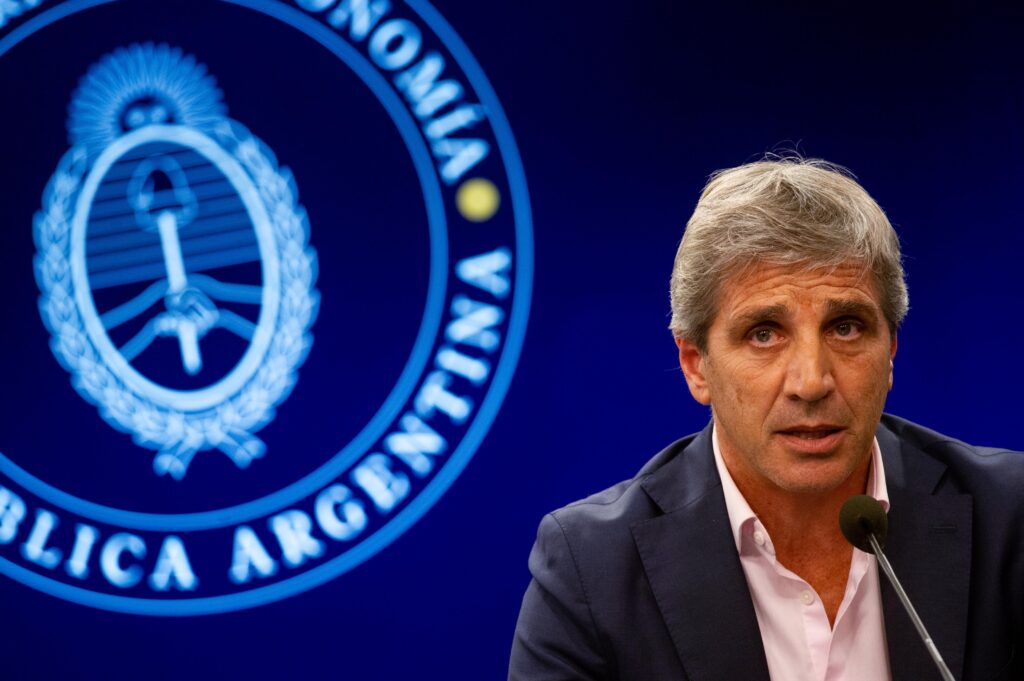After a hard-fought campaign, a reformist candidate benefited from widespread disillusion with the previous government, winning the Argentinian presidential election on a platform of fiscal discipline, economic liberalization, and structural reforms. The international community breathed a sigh of relief and eventually supported an International Monetary Fund (IMF) loan to Argentina, hoping to solidify the momentum behind economic reform.
This, of course, was the story of President Mauricio Macri’s government, which began in late 2015. The ending is well known: The economic turnaround fell short, in part because there was no congressional majority for significant reforms, and the country’s scarce foreign exchange reserves were spent in an unsuccessful attempt to prevent the exchange rate from crashing.
After returning to power in late 2019, the Peronists under President Alberto Fernández put pressure on the IMF to agree to a debt rollover—without even a hint of economic reform. Unfortunately, the institution’s management and shareholders went along, fearing a default on Argentina’s IMF obligations that would have dented the IMF’s financial standing. They ended up merely pushing the problem down the road and facilitating yet another episode of fiscal overspending that ended in hyperinflation, rising poverty, and empty state coffers.
It makes sense for now to continue with the loan, helping the government with its unprecedented steps to stabilize the Argentinian economy.
The clean-up task has now fallen to the government of President Javier Milei, which has been off to an impressive start, lifting economic restrictions and taming the fiscal deficit. Given the lack of reserves to repay external creditors, one of its first steps was to ask for the resumption of the existing IMF program, which had been on hold due to unrealistic pre-election spending promises.
Agreement on the next IMF tranche of funds, announced on January 10, was reached fairly quickly, even as some of the policy priorities of the new government are still being formulated. However, it would have been highly irrational for the IMF to resist, given the excessive leniency extended to the last administration. It makes sense for now to continue with the loan, helping the government with its unprecedented steps to stabilize the Argentinian economy.
After the program ends in September, Argentina’s external financing needs will recede for several years, mainly because the repayment of the earlier IMF program is complete. Although Milei has been careful not to commit to a new program request yet, it seems likely that his administration will need to return to the negotiation table in the near future, given the Herculean task in front of it.
The IMF should not rush into a new program, either. Another failed program would not help long-suffering Argentinians, and there are at least three important concerns that need to be addressed:
- There are still fundamental questions about Argentina’s economic future. Notwithstanding the government’s ambitious plans, it is not clear that the economy’s growth potential can be marshalled quickly enough, even under an ideal reform scenario. The large adjustment underway could deepen the recession, and there is not much debt left that could be restructured to ease public financing constraints. Moreover, it is highly doubtful that market investors, often burned in the past, will be eager to rush in with new money quickly.
- The success of the Milei administration in pushing major reforms through congress is highly uncertain. Without a majority on its own, and with a large Peronist opposition in Argentina’s Congress and in the provinces, Milei’s Freedom Advances party may not be able to pass important labor market and pension reforms that would be fundamental to attract foreign direct investment and boost productivity over the long run. But unless the country breaks with the worst excesses of its Peronist past, any major program appears doomed from the beginning.
- Except for its economic agenda, the policy program of the new administration has not yet moved into focus. There was an authoritarian streak to many of candidate Milei’s pronouncements, and the current minister of security, Patricia Bullrich, also campaigned on a tough law-and-order platform. It remains to be seen whether their domestic policies will remain conducive to an economic recovery, an issue that may flare up around a potential major strike called for by the trade unions to begin on January 24.
Argentina is not the first country to find itself (again) in such a dire situation. However, in countries that were able to overcome deep-seated structural problems, reforms eventually stuck beyond the tenure of any single government. That required a societal consensus to discard the old ways of doing business that were no longer viable. For example, Greece, Brazil, and Jamaica were finally able to achieve turnarounds, either by way of consensus or by ditching extremist views at the ballot box. Argentina’s divided political landscape offers little hope in this regard, even if its recent elections have hinted at a shift toward market-oriented politics.
It would therefore be unwise for the IMF and its major shareholders to work exclusively with the Milei government to negotiate a new program. Argentina’s opposition needs to share the responsibility for cleaning up the mess it left behind, agreeing to an economic strategy that has a realistic chance of success. IMF shareholders should present Argentina with a stark choice: take a sustained path of reform that will be supported with fresh money and investment incentives, or face an uncertain future with prolonged misery, social hardship, and continued decline. Even to die-hard Peronists, the right choice should by now be obvious.
Martin Mühleisen is a nonresident senior fellow at the Atlantic Council’s GeoEconomics Center and a former IMF official with decades-long experience in economic crisis management and financial diplomacy.
Further reading
Mon, Nov 20, 2023
Experts react: Can ‘lion king’ Milei tame Argentina’s roaring inflation?
New Atlanticist By
The former television personality known for his libertarian economic views and unruly mane will become Argentina’s next president. His first task will be dealing with runaway inflation.
Thu, Nov 30, 2023
Milei is backing away from his radical dollarization idea. What options does Argentina have?
New Atlanticist By Martin Mühleisen
The incoming president’s campaign pledge to move Argentina to the US dollar seems less and less likely in the near term.
Mon, Nov 20, 2023
The economic aftershocks from Milei’s win in Argentina
Fast Thinking By
Argentina’s economy is due for radical change from the Peronist status quo as libertarian TV personality Javier Milei is set to become the country’s next president.
Image: Buenos Aires.- In the photo taken on January 10, 2024, the Minister of Economy, Luís Caputo, indicated today that it has managed to "refloat the Agreement of Expanded Facilities fallen with the International Monetary Fund", said that it is not a "new agreement" with the agency and informed that the disbursement that Argentina will receive will be "to pay the capital maturities corresponding to December, January and April".



